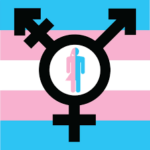In today’s world, conversations around gender identity and expression have become increasingly important, yet they can still be a bit confusing for many. One term you might come across is "Trans FTM," which stands for transgender individuals who were assigned female at birth but identify and live as male. This article aims to break down what Trans FTM means, explore the journey of individuals within this community, and highlight how you can offer your support.
Understanding Trans FTM: What It Really Means
Trans FTM is shorthand for "transgender female-to-male." This label describes individuals assigned female at birth but who identify and live as male. For many, this identity is an essential part of who they are, and it’s important to respect and affirm that identity. The journey of being Trans FTM is deeply personal, often requiring individuals to navigate both societal perceptions and their internal understanding of self.Non Prescription Estrogen PillsHow Does Tamoxifen WorkFufu Training Device
Understanding the term also involves recognizing that not all Trans FTM people will pursue medical interventions like hormone therapy or surgeries. Each individual’s experience is unique, and their chosen path may be influenced by various factors like personal comfort, health considerations, and cultural or financial resources. Being aware of these complexities is crucial in fostering a supportive environment for these individuals.
The Basics of Gender Identity and Expression
Gender identity refers to how someone personally understands and experiences their own gender, which may or may not align with the sex they were assigned at birth. Gender expression, on the other hand, is how individuals express that identity through behavior, clothing, hairstyle, and other forms of expression. For Trans FTM individuals, this often means embracing a masculine identity and expressing it in ways that feel authentic to them.
It’s important to note that gender is not binary; it exists on a spectrum. This means that while some people may strictly identify as male or female, others may identify as non-binary, genderqueer, or other identities that do not fit neatly into traditional categories. Understanding this spectrum can help in appreciating the diverse experiences of gender.
Who Are Trans FTM Individuals? A Quick Overview
Trans FTM individuals come from various backgrounds, cultures, and life experiences. They may be young people grappling with their identity, professionals carving out careers, or anyone in between. Their stories and experiences are as diverse as the individuals themselves. The common thread among them is the desire to align their outward lives with their inner identities.
This community has gained visibility in recent years, thanks in part to advocacy, media representation, and social movements that emphasize inclusion. As more Trans FTM voices are heard, society gains a better understanding of their experiences, challenges, and triumphs, fostering acceptance and compassion.
Common Misconceptions About Trans FTM Explained
One prevalent misconception is that being Trans FTM is merely a phase or a trend. In reality, gender identity is a deeply ingrained aspect of who someone is and is not chosen lightly. Many Trans FTM individuals spend years understanding their identity before coming out, so it’s important to approach these experiences with empathy and respect.
Another common myth is that all Trans FTM individuals must undergo medical transition to be valid in their identity. While many do choose hormone therapy or surgery, others may not, and their identities are no less legitimate. The emphasis should be on respecting each individual’s choices regarding their bodies and identities, whatever those may be.
The Transition Journey: What to Expect as a Trans FTM
Transitioning can be a multifaceted process that may include social, medical, and legal components. Social transition might involve changing one’s name, pronouns, and the way they present themselves to the world, which can be a liberating yet daunting step. For many, the support of friends and family during this phase is invaluable.
Medical transition can include hormone replacement therapy (HRT) and surgeries to alter secondary sex characteristics. However, the journey is highly individual; not everyone will choose to undergo medical procedures, and that’s perfectly okay. The most important aspect of transitioning is that it feels right for the individual, as this journey is about aligning their external reality with their internal truth.
Support and Resources for Trans FTM Communities
Fortunately, there are countless organizations and resources dedicated to supporting Trans FTM individuals. Groups like the Human Rights Campaign (HRC), the Trevor Project, and local LGBTQ+ centers offer invaluable support, educational resources, and community connection. These organizations often provide resources tailored to meet the specific needs of Trans FTM people and their families.
Additionally, online forums and social media platforms can be powerful spaces for connection and sharing. Many Trans FTM individuals find community in these spaces, where they can share experiences, seek advice, and find comfort in knowing they are not alone in their journeys. Finding a supportive network can make a world of difference.
Celebrating Trans FTM Stories: Voices That Matter
It’s essential to uplift and celebrate the stories of Trans FTM individuals, as they provide visibility and representation that is crucial for societal understanding. These voices challenge stereotypes and deepen our comprehension of gender identity. From activists and artists to everyday heroes, the contributions of Trans FTM individuals enrich our communities and inspire change.
Documentaries, podcasts, and books often feature Trans FTM experiences, offering insights that can educate those outside the community. These stories remind us that each individual’s journey is unique and needs to be honored and recognized. Celebrating these narratives fosters empathy and encourages a culture of acceptance.
How to Be an Ally to Trans FTM People in Your Life
Being an ally to Trans FTM individuals starts with actively listening and learning. If someone in your life identifies as Trans FTM, ask respectful questions and be open to their experiences. Use the name and pronouns they prefer, and understand that this is a crucial aspect of affirming their identity.
Additionally, educating yourself about the challenges faced by the Trans FTM community can help you advocate for their rights and needs. This might mean challenging misconceptions when you hear them or standing up against transphobia. Allies can play a vital role in creating supportive environments where Trans FTM individuals can thrive and be their authentic selves.
Understanding and supporting Trans FTM individuals is essential in fostering an inclusive society. By demystifying the term and the experiences associated with it, we can break down barriers and create environments where everyone is respected for who they are. Whether you are a friend, family member, or simply an interested ally, your support can make a genuine difference in the lives of Trans FTM individuals. Let’s work together to uplift these voices and celebrate their journeys!


